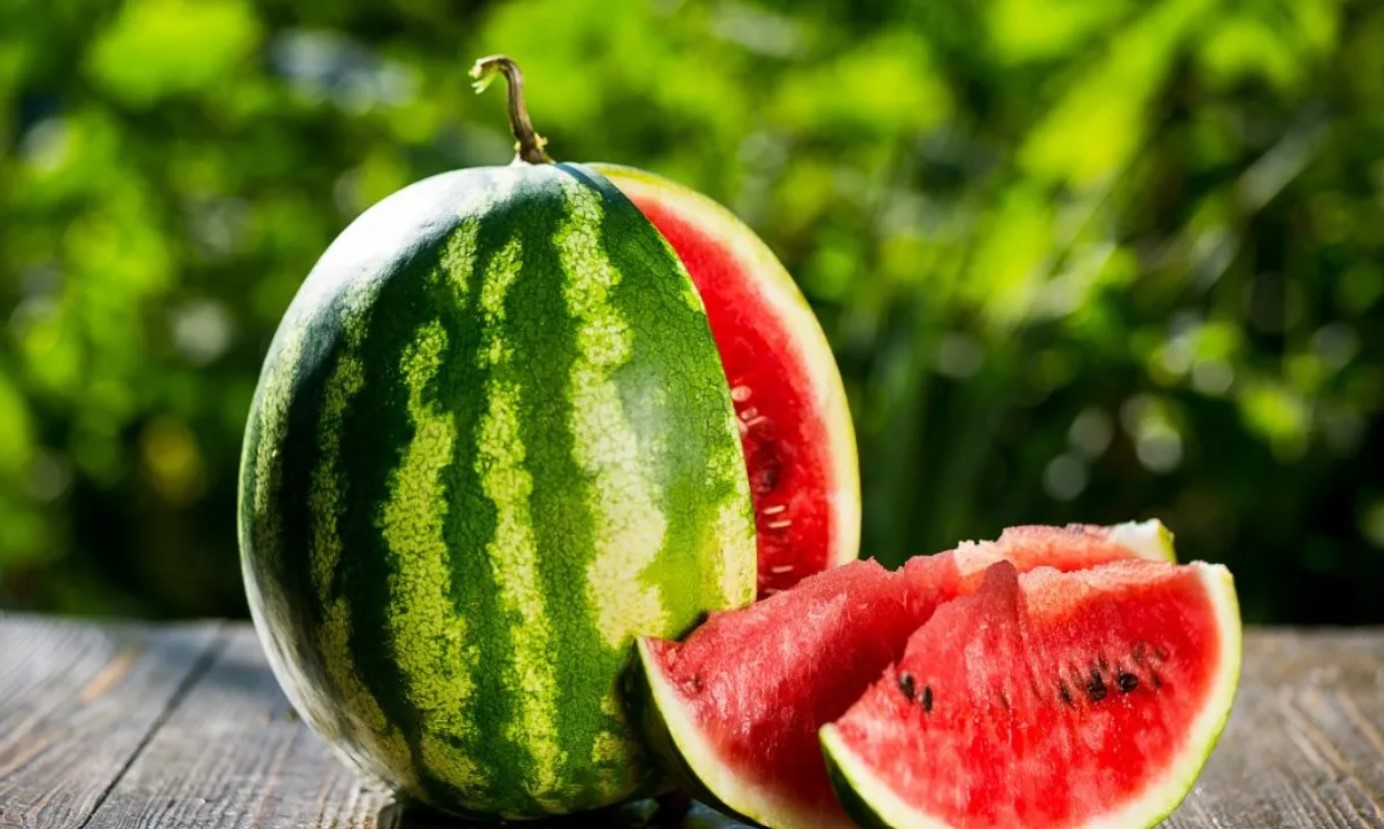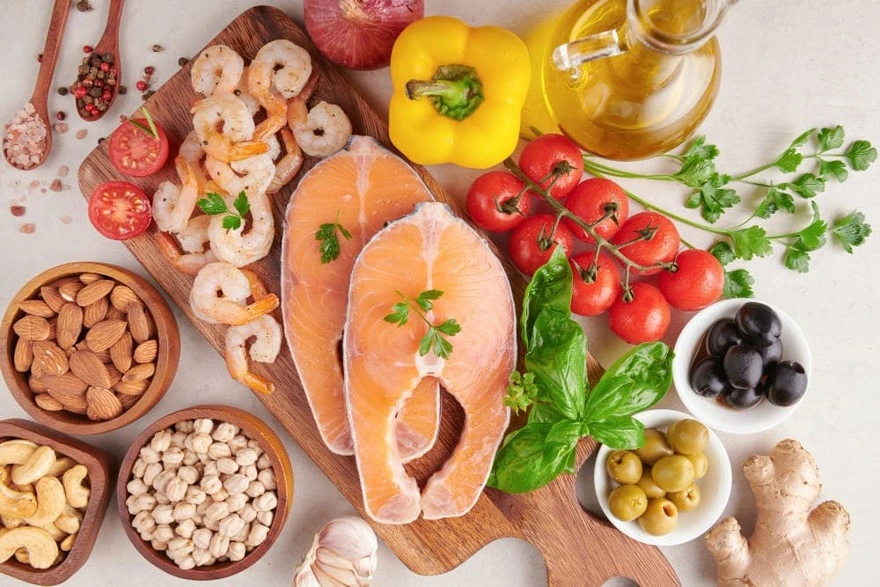






A Complete Review of Watermelon Benefits and Risks For Diabetics


Watermelon, a popular and refreshing fruit, is a source of concern for patients suffering from diabetes due to its moderate effect on blood sugar levels. While it is rich in vitamins, antioxidants, and hydration benefits, it has the highest glycemic index, causing rapid blood sugar spikes. Watermelon's role in diabetic diets is reviewed from a balanced perspective, taking into consideration both the benefits and the significant risks. Using this guide, readers will be able to make informed decisions about their diets.
Benefits of Watermelon For Diabetics
Individuals with diabetes can derive significant nutritional benefits from watermelon. This fruit is a rich resource of essential nutrients, offering a range of health perks. Here's a breakdown of the specific benefits:
Vitamins: Watermelon is a rich fountain of vitamins, particularly vitamins C and A. These vitamins play a leading role in upholding overall health, including augmenting the immune system and fostering good vision.
Minerals: The fruit encompasses elementary minerals such as potassium, which is notable for maintaining healthy blood pressure levels. Potassium also sustains proper muscle and nerve function, which are necessary for individuals with diabetes.
Hydration: Studies have shown that watermelon has 92% water content, which can supply proper hydration. Adequate hydration is primary for managing diabetes and supporting overall well-being.
Antioxidants: It comprises antioxidants such as lycopene, which may have beneficial effects on heart health. This is especially important for persons with diabetes, as they have an increased risk of developing cardiovascular complications.
Low in Calories: This fruit is comparatively low in calories, making it an effective choice for individuals looking to manage their weight as part of diabetes management.
Fiber: Although watermelon is sweet, it contains fiber, which can help regulate blood sugar levels. The fiber content of the fruit can relax the absorption of sugar, potentially preventing rapid spikes in blood glucose levels.
It's important to note that while watermelon offers these health benefits, individuals with diabetes should take it in limited quantities due to its natural sugar content. Balancing serving sizes and monitoring blood sugar levels after consumption is key to incorporating watermelon into a diabetic-friendly diet.
Watermelon Risks For Diabetes
Watermelon can be safe for individuals with diabetes to eat in moderate amounts, but it can have some side effects:
- Blood Sugar Levels
It has a high (GI) of 72 per 100 g serving but a low glycemic load (GL) of 5–6 per cup. This means that a small serving won't cause harm, but overeating can expand the GL and lead to blood sugar spikes. To avoid this, it's best to limit yourself to two servings a day and eat watermelon with foods that comprise fiber, protein, and nutritious fats. You should also monitor your blood sugar responses.
- Digestive Issues
When eaten regularly, watermelon can cause nausea, heartburn, loose stools, and inflammation.
- Allergic Reactions
Some people may suffer allergic reactions to watermelon, such as hives, swelling, and difficulty breathing. If this occurs, you should pursue immediate medical care, as it can sometimes lead to anaphylaxis, which is life-threatening.
- Skin Discoloration
In rare cases, excessive use of watermelon may lead to an orange-yellow discoloration of the skin.
How to Reuse Watermelon Seeds and Rinds
Watermelon seeds aren’t just safe to eat—they’re a hidden treasure trove of nutrients. Magnesium, which maintains blood sugar and blood pressure, is an essential mineral found in these small seeds, which is often overlooked. They also contain L-citrulline, an amino acid that reduces muscle soreness and improves blood flow. Omega-6 fatty acids are also found in watermelon seeds, which are important for brain function, skin health, and bone density.
Watermelon rinds, the outer layer often discarded, have just as many benefits. The rinds of watermelon are lower in sugar and higher in fiber, making them a healthier alternative to the flesh. Fiber in the rinds aids digestion and slows down sugar absorption into the bloodstream, thereby helping regulate blood sugar levels. The L-citrulline in watermelon rinds is also known for its vasodilatory properties, which may lower blood pressure.
Diabetes sufferers can benefit from eating watermelon seeds and rinds. Fruit parts can be used in a variety of ways. Watermelon seeds can be roasted and seasoned as a nutritious snack, ground into a powder, and added to smoothies, yogurt, or baked goods. You can juice, pickle, or stir-fry watermelon rinds to boost nutrition and flavor.
Those with diabetes can incorporate watermelon seeds and rinds into their daily routine by exploring their nutritional value and versatility. The approach reduces food waste while improving the nutritional profile of your diet, providing essential nutrients that help control diabetes and maintain good health. If you enjoy a slice of watermelon, consider saving the seeds and rinds—you might be surprised what they can do for you.
Watermelon and Cardiovascular Health
Watermelon, with its richness of L-citrulline and L-arginine, can be a boon for cardiovascular health. These compounds aid in improving blood flow and reducing blood pressure, thereby supporting overall heart health. By infusing watermelon into your diet, you can take a proactive step towards better vascular function.
Researchers have found that watermelon can significantly reduce blood pressure and improve vascular function, protecting against cardiovascular disease. Take proactive measures to support heart health by including watermelon, seeds, and rinds in your diet.
The polyphenols and carotenoids, especially lycopene, found in watermelon also play a leading role in cardiovascular health. Lycopene, in particular, has been linked to lower levels of LDL cholesterol and reduced oxidative stress, both of which are central factors in preventing heart disease. Including watermelon in your diet can thus offer a multifaceted approach to maintaining a healthy heart.
How Many Nutrients a Watermelon Offers?
- Calories: 30
- Water: 91%
- Protein: 0.6 grams
- Carbs: 7.6 grams
- Sugar: 6.2 grams
Wrap Up!
By eating watermelon into your diet, you can enjoy a sweet, hydrating treat while benefiting from its low-calorie and low-sugar content. The natural nutrients in watermelon, such as fiber and vitamins, can help regulate blood sugar levels and support overall well-being. Embrace the versatility of watermelon to enhance your diet and manage diabetes more effectively.
On the other hand, there are many supplements that may also help you maintain your diabetes and other health-related conditions.
Luckily, SugarMD offers numerous supplements made with natural ingredients under the supervision of certified doctors. If you are looking for products that can help manage diabetes, kidney health, fat metabolism, glucose levels, and various other health concerns, then SugarMD could be your ideal solution. We are ready to help you out!
For more details, you can visit www.sugarmds.com now!
Written By Dr. Ahmet Ergin
457 total articles
Meet Dr. Ahmet Ergin, a highly skilled and dedicated endocrinologist with a passion for diabetes care. Dr. Ergin earned his medical degree with honors from Marmara University in Istanbul. He completed internal medicine residency and endocrinology fellowship at Cleveland Clinic. Dr. Ergin is board-certified in Internal Medicine, Endocrinology, Diabetes, and Metabolism due to his vast medical expertise. He's a certified diabetes educator, author of “The Ultimate Diabetes Book,” and founder of “the SugarMD YouTube channel.” Dr. Ergin offers exceptional diabetes care to his patients in Port Saint Lucie, FL, helping them manage effectively. For a closer look into his insights and experiences, connect with Dr. Ahmet Ergin on LinkedIn, Instagram, and YouTube.”
Disclaimer: These statements have not been evaluated by the Food and Drug Administration. Information on this website isn't intended to treat, cure or prevent any disease. Discuss with your doctor and do not self-treat.
Products















